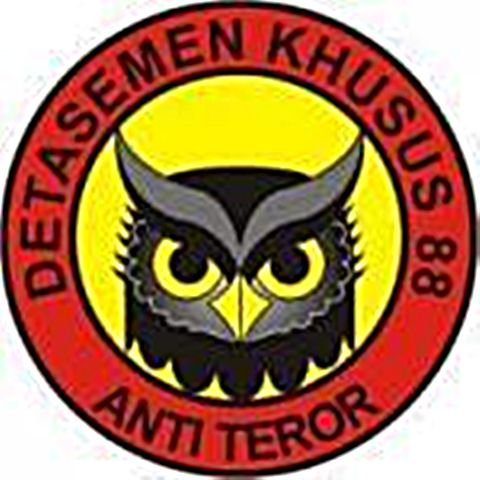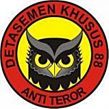
Indonesia’s “Ghost Birds” Tackle Islamist Terrorists: A Profile of Densus 88
Publication: Terrorism Monitor Volume: 9 Issue: 32
By:

After the 2002 Bali bombings, Indonesia recognized that the main threat to national security came from regional terrorist networks whose leaders returned to Indonesia after Suharto fell from power in 1998. An elite counterterrorism unit, Densus 88 (Detasemen Khusus 88, or Special Detachment 88), was Indonesia’s answer to the terrorists who exploited the country’s weakened security environment. Among the terrorists were many former Afghan jihadis as well as Abu Bakr Ba’asyir and the late Abdullah Sungkar – the duo that founded Jemaah Islamiyah (JI) while in exile in Malaysia between 1985 and 1998.
Densus 88 is an all-Indonesian force with 400-500 personnel led by Brigadier General M. Syafii. The unit is equipped primarily with U.S.-made Colt M4 carbines (which were effectively employed in the siege of Dr. Azahari Husin’s hideout in Batu in 2005), Armalite AR-10 sniper rifles, Remington 870 shotguns, and Austrian-made Steyr AUG assault rifles. Training is provided by American security services and Australian Special Forces. There is some debate about the origin of the “88” designation, though most likely it represents the number of Australians who died in the Bali bombings and the image “88” is reminiscent of two handcuffs [1].
From 1999 until 2002 – the year Densus 88 was created – JI attacks included a bombing at the Istiqlal Mosque in Jakarta, an assassination attempt on the Philippine ambassador in Jakarta, and church bombings in Jakarta, Sumatra, Lombok, Java, and Batam. The JI-affiliated Lashkar Jihad also sent thousands of students from five JI-linked pesantren (Islamic boarding schools) in Java to the Moluccas, Sulawesi, and Papua to fight against Christians (see Terrorism Monitor, May 5, 2005). JI’s terror offensive culminated with the bombings at Kuta Beach in Bali, which killed eight Americans, 88 Australians and more than 100 others.
Following the Bali attack, the U.S. State Department’s Diplomatic Security Services identified Indonesia as a frontline in the global war on terror and provided funds under the Anti-Terror Assistance Program to establish Densus 88 and pay for salaries, weapons, high-level training in communications interception, close combat warfare and forensic sciences, and surveillance and intelligence gathering and analysis. The budget included start-up costs of $130 million in the second half of 2003, followed by annual funding which increased from $1.3 million in 2004, to more than $13 million in 2005, to more than $40 million in 2006 [2].
Currently, Australia funds Densus 88 with $16 million annually and in 2004 Australia pledged $35 million over five years to build a training center at the Jakarta Centre for Law Enforcement Co-operation, where the Australian Federal Police (AFP) runs seminars for Densus 88. [3]
In November 2005, Densus 88 turned the tide in Indonesia’s war against JI. A Densus 88 sniper shot Dr. Azahari Husin, the JI mastermind behind the 2002 and 2005 Bali bombings and the JW Marriot and Australian Embassy bombings, during a raid on Husin’s hideout in Batu, East Java. An accomplice set off a suicide explosive killing himself and a third man who had joined Husin in engaging the counterterrorism force in an intense gun battle. After Husin, Densus 88 eliminated JI’s other top operatives in near succession:
- In 2007 Densus 88 captured Abu Dujana in Central Java with the help of U.S satellites operated by Australian Police which tracked his cellphone activites.(Tempo Interaktif [Jakarta], June 20, 2007; for a profile of Abu Dujana, see Terrorism Monitor, April 4, 2006).
- In 2009 Densus 88, acting on tips and surveillance, surrounded a house that Noordin Mohammed Top was renting in Solo. Noordin blew himself up along with his wife and two children to save himself from being killed or captured by Densus 88 (for a profile of Noordin Top, see Terrorism Monitor, July 25, 2006).
- In 2010, Densus 88 tracked down and killed Dulmatin, who had a $10 million bounty on his head, in an internet café in Jakarta. Indonesian President Yudhoyono confirmed Dulamtin’s death while giving a speech to the Australian Parliament (for a profile of Dulmatin, see Terrorism Monitor, July 9, 2006).
- In May 2011 Abu Bakr Ba’asyir received a 15-year sentence after his conviction for sponsoring a terrorist camp in Aceh that Densus 88 raided in 2010.
Densus 88’s collaboration with the U.S. and Australia has not gone unnoticed by the terrorists it hunts down. Abu Bakar Ba’asyir said during his trial that allegations of terrorism were “deliberately spread by God’s enemy – the Zionists and their allies America and Australia, and followed by Densus 88” (The Age [Melbourne], February 23). Radical Islamic groups in the country, such as the Islamic Peoples’ Forums (FUI) and Islamic Defenders Front (FPI), see Densus 88 as a U.S. and Australian-backed paramilitary unit that systematically arrests and kills Islamic activists under the pretense of terrorism. They cite Densus 88’s start-up and operational funding as proof (Jakarta Globe, August 31, 2010).
Densus 88 has also come under scrutiny from human rights groups because of its reputation for torture, especially when it comes to suppressing separatists, and its use of American and Australian wire-tapping technologies to track suspects. In 2007, Densus 88 tortured many of the 22 people responsible for unfurling the South Mouccan independence movement flag in front of President Susilo Bambang Yudhoyono during his visit to Ambon. In 2010, their leader died in prison three years into his 12-year sentence for treason after having been denied medical access for kidney problems he attributed to beatings and being forced to drink hot water infused with carbon paper (Sydney Morning Herald, September 13, 2010). In August 2010 Densus 88 allegedly tortured 12 Mouccan separatist suspects for a week, suffocating them with plastic bags, stabbing them with nails, and forcing them to eat raw chili peppers.
Densus 88’s reputation was tainted again in October 2010 one month before President Obama’s visit to Indonesia when a video showed Indonesian security forces pressing a stick smoldering from fire against a Papuan separatist suspect’s genitals, a plastic bag wrapped around the suspect’s head, and one officer holding a large knife next to the suspect as he pleads, “I’m just an ordinary civilian.” [3] This was only months after the Obama administration announced it would resume aid to Kopassus in July 2010. Congress had prohibited relations with Kopassus in 1999 due to allegations that Kopassus aided militias in East Timor that carried committed human rights abuses.
Cutting off funds to Densus 88 is still unlikely since Densus 88’s record of more than 500 militant arrests and decapitating the JI leadership has drawn as much, if not more, international attention and praise. Since its last major attack in July 2009 – the bombings of the JW Marriot and Ritz-Carlton hotels in Jakarta, allegedly planned by Noordin – JI has not been able to orchestrate sophisticated large-scale attacks.
Although Densus 88 has dismantled and decapitated the JI network, small cells of former JI fighters and other separatist movements have attacked Ahmadiyah Muslims, churches, moderate mosques and various Islamic organizations to create religious divides in the normally tolerant country. [3] These terrorists have employed letter bombs, suicide-bombings, and drive-by shootings in their campaign, which typically targets Indonesians rather than Westerners.
A look at Densus 88’s recent operations shows the effectiveness of Densus 88 in detecting new cells, connecting suspects from one cell to related cells and tracking down long-time terrorists:
- On June 9, Densus 88 arrested Heri Kuncoro, a brother-in-law of Dulmatin, and Sugeng Setiaji, in Central Java. Interrogation of Heri and Sugeng led to the arrest of two of the 18 suspects in police shootings in Palu, Sulawesi in May 2011 (Antara News [Jakarta], June 16).
- On June 10, acting on reports from local residents, Densus 88 found three bombs tied with yellow tape behind a church in Poso, Central Sulawesi (Jakarta Post, June 10).
- On June 11, the police arrested Muhammad Sibghotulloh and Yuwardi in East Kalimantan Province. The pair supplied weapons from the Philippines that were used in drive-by shootings that killed two police officers in Palu, Central Sulawesi, in May. They were also suspected of being involved in planning last April’s suicide-bombing of the Adz Zikra mosque in Cirebon, West Java (Antara News, June 16; Reuters, June 15).
- On June 15, Densus 88 confiscated bomb components, detonators, and notes on bomb-making and arrested a terror suspect at a sports store in Pemalang, Central Java. The 42-year old suspect, Sudirman, was believed to have been involved in the 2002 and 2005 Bali bombings as Dulmatin’s right-hand man (Jakarta Post, June 17, 2011).
- On July 19, Densus 88 arrested seven people in Yogyakarta and 5 people in Central Java allegedly linked with the network of Upik Lawanga (a.k.a. Taufik Bulaga). Lawanga was a student of Azahari Husin and is now JI’s bomb making expert (Tempo Interaktif, July 20).
Densus 88 is living up to the local reputation of its emblem, the burung hantu (“ghost bird,” or owl). Having come into its own since 2005, Densus 88 has turned JI into the prey, disrupted the terrorist infrastructure in Indonesia, and protected its citizens as well as the facilities and citizens of its American and Australian allies.
Densus 88’s operational capabilities are proven, but Densus 88’s leadership still has to find a way to eliminate rogue members from the unit and abolish the heavy-handed tactics that provide a source of propaganda for Islamist and separatist groups as well as justification for unsympathetic members in the U.S. Congress and Australian parliament calling for a reduction or halt in funding.
Note:
1. See “Indonesia’s Elite Forces Detasemen 88,” https://indonesiaeliteforces.tripod.com/id37.html
2. See Muradi Clark, Densus 88 AT: “Peran dan Koordinasi Dalam Pemberantasan Terorisme di Indonesia” [Densus 88 AT: The Role and Coordination in Counter-Terrorism in Indonesia], May 12, 2009, https://muradi.wordpress.com/2009/05/12/densus-88-at-peran-dan-koordinasi-dalam-pemberantasan-terorisme-di-indonesia/ .
3. See https://video.ahrchk.net/AHRC-VID-012-2010-Indonesia.html
4. The Ahmadiyah are a Muslim movement founded in India by Mirza Ghulam Ahmad (1835–1908), who declared himself the expected Mahdi. The movement is considered unorthodox by orthodox Muslims and heretical by Salafists.




